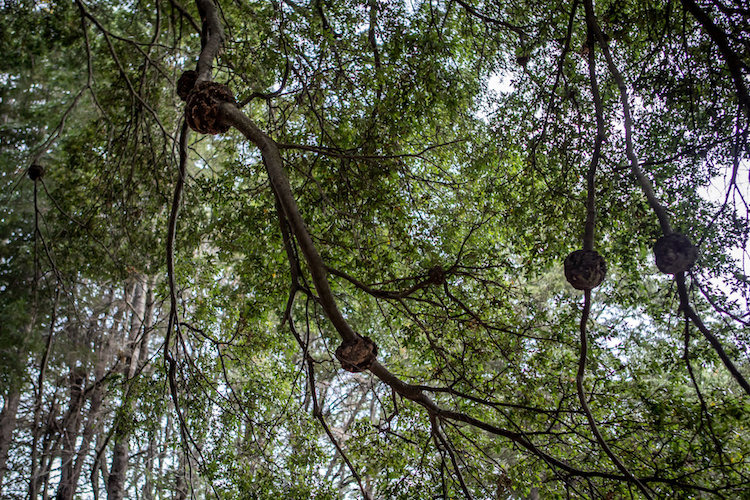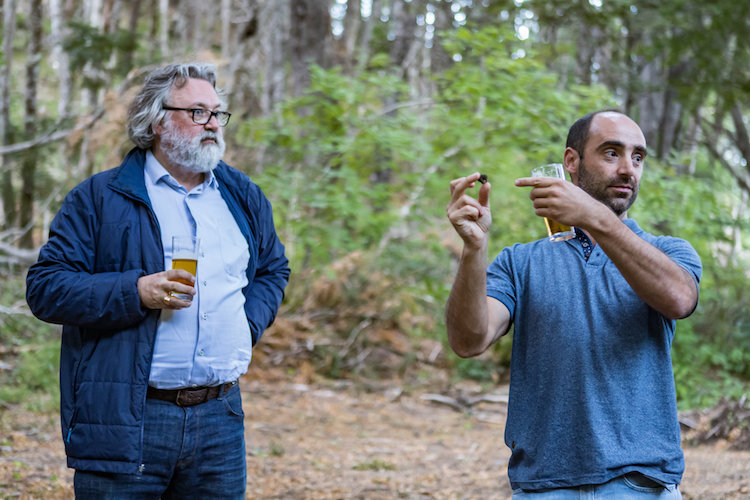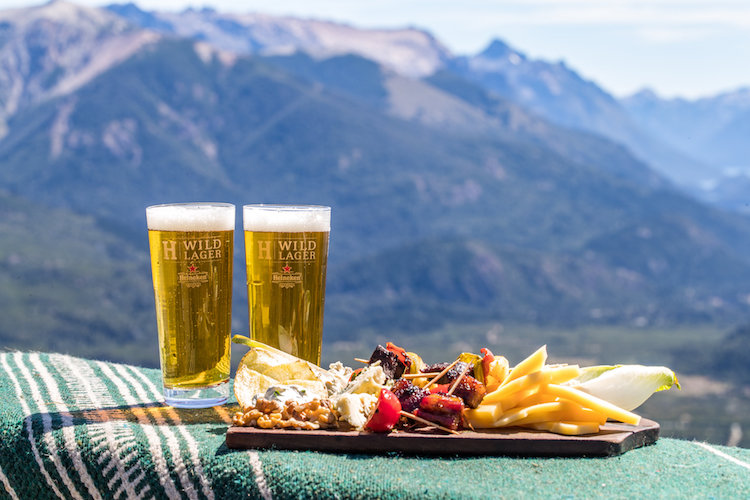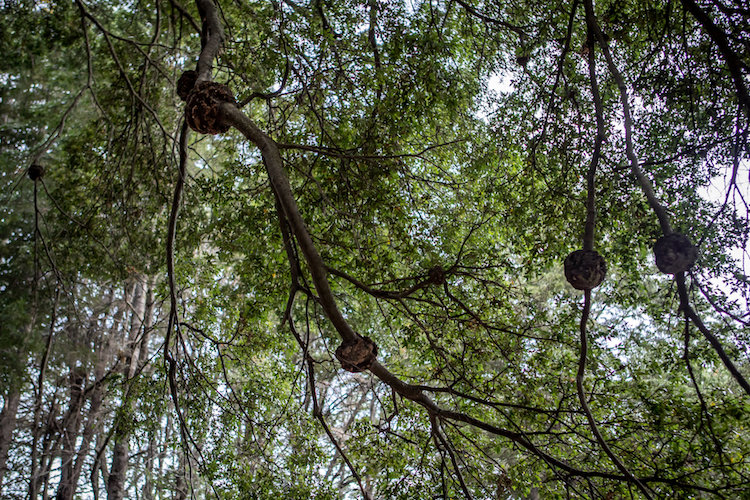Heineken's H41 Wild Lager Will Transport Your Tastebuds To Patagonia
Heineken's latest project is a labor of love and science. H41, the first of the beer giant's limited-edition Wild Lager series, is the result of one Argentinian scientist's discovery and a Heineken brewmaster's expertise and palate. Named "H41" for Heineken, and 41 degrees south (the longitudinal coordinate where one of its key ingredients was discovered), the brew is an easy-drinking lager with a complex taste derived from a wild fungus found in the remote forests of Argentina.
The first-of-its-kind Heineken lager is made with a naturally occurring mother yeast native to the beech forests of Patagonia. Biologist Diego Libkind discovered the wild mushroom called "llao llao" littered across the lush green forest floors of this region of Argentina while on a walk. He theorized that the fungi, which grow in tumor-like knots on the beech trees, likely contained a form of yeast. After conducting many tests, he discovered that the faintly-alcoholic smelling Patagonian llao llao fungus was the perfect base for a beer.
The resulting flavor — from the yeast "having sex," as van Waesberghe romantically put it, and then being used to ferment the mash for this new lager — is "spicy," with a clove-like aroma, and is also "a little smoky and has notes of caramel." Waesberghe recommends drinkers of H41 pair it with spicy foods, chocolate, and barbecued meat — all flavors Patagonia and the city of Bariloche (where the brand will build Latin America's first-ever brewing technology center) are known for.
This is only the beginning for the Heineken's Wild Lager series and its possibilities, all of which Heineken plans to brew with new yeasts developed from wild species like llao llao. "H41 isn't the only yeast that lives here," Libkind told The Daily Meal of Patagonia and its forests. "There are over 5,000 strains and varieties."
Looking for more beer info? These are the world's 50 best beers for 2018.
Travel expenses as well as food and drink samples for this story were paid for by Heineken at no cost to the writer.



